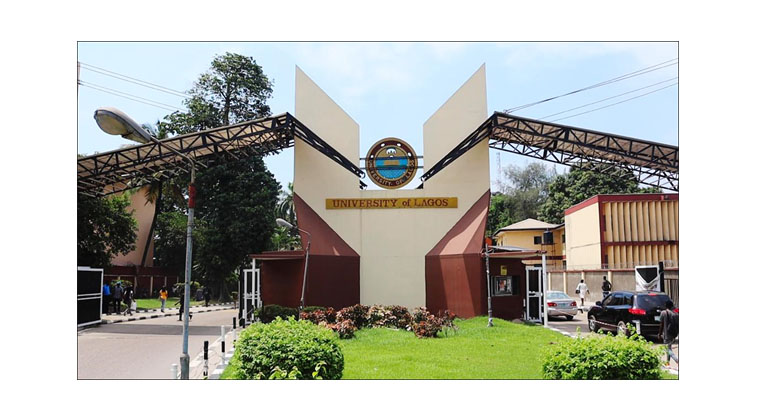As Nigeria celebrates its 64th Independence Day, the nation continues to grapple with numerous developmental challenges. One issue consistently at the forefront of national discourse is education. Access to quality education is widely regarded as a fundamental right that every citizen should enjoy. However, the rising cost of education in Nigeria raises a critical question: should education be expensive, and what are the implications of this for national development?
Under President Bola Tinubu’s administration, the cost of education in Nigeria has escalated dramatically, placing a significant financial burden on families across the country. This surge in educational expenses, driven primarily by substantial increases in tuition fees at tertiary institutions, has sparked widespread concern among parents, students, and educational stakeholders. The harsh economic realities of high inflation and rising living costs have compounded the challenges faced by families, making it increasingly difficult for many to afford higher education.
Recent hikes in fees have exceeded 150% at several institutions, reflecting a troubling trend in Nigeria’s education sector, where affordability has become a critical issue. Many public universities, once considered accessible avenues for education, are now implementing fee structures that are out of reach for the average Nigerian family. For instance, students at the Federal University of Technology, Akure, face proposed fees as high as N240,500 for new intakes, a staggering increase from just N13,000 paid by final-year students four years ago. This alarming shift has resulted in a significant number of students dropping out of their programmes, exacerbating the educational crisis and underscoring the urgent need for reforms.
As students confront escalating fees and a challenging economic climate, many have turned to loans and financial aid programmes to meet their educational expenses. Unfortunately, these avenues often fall short, leaving students in precarious situations, especially as examination deadlines approach. The plight of students at institutions like the University of Ibadan, who are resorting to crowdfunding to pay their fees, highlights the pressing need for systemic reforms in educational funding. Ensuring that quality education remains accessible and equitable for all, regardless of economic background, is crucial for the future of Nigeria’s youth and the nation’s overall development.
Education plays a vital role in the social, economic, and political growth of any nation. It is widely accepted that no country can achieve sustainable development without substantial investment in human capital. Quality education equips individuals with the knowledge, skills, and values necessary to contribute meaningfully to the workforce, foster innovation, and participate in nation-building.
For Nigeria, a country with vast human resources and a youthful demographic, education is even more essential. With a population exceeding 200 million, approximately 60% of whom are under the age of 25, this youthful population presents a unique opportunity for economic development. However, if the youth are not equipped with the requisite education and skills, the country risks facing a deepening cycle of poverty, unemployment, and underdevelopment.
Despite its importance, education in Nigeria faces several challenges, chief among them being accessibility and affordability. The cost of education, particularly at the tertiary level, has skyrocketed in recent years. Private universities and even public institutions now charge fees that are beyond the reach of many families, especially those in low- and middle-income brackets. Public universities, which traditionally offered more affordable education, have suffered from underfunding, leading to poor infrastructure, overcrowded classrooms, and frequent industrial actions by lecturers. These challenges have significantly affected the quality of education, leaving many students either dropping out or graduating without the skills needed to compete in the global marketplace.
Moreover, Nigeria still has a significant number of out-of-school children, estimated at over 10 million according to UNICEF. Many of these children come from impoverished backgrounds, where families cannot afford the costs associated with education, such as school fees, books, uniforms, and transportation. Consequently, they are denied the opportunity to build a better future for themselves and contribute to national development.
Read also: Student loan: N20,000 stipend may be increased, says NELFUND
Why education should be affordable
1. Education as a basic right: Education is a fundamental human right, recognised by various international treaties and the Nigerian constitution. Access to this right should not depend on one’s socio-economic status. Making education expensive creates a class divide, where only the wealthy can afford quality schooling, leaving the majority with inadequate or no education at all.
2. Social and economic equity: Affordable education promotes social justice and reduces inequality. When all citizens, regardless of their background, have access to quality education, it levels the playing field, allowing everyone a fair chance at success. This reduces social unrest and promotes national cohesion, as people feel empowered to achieve upward mobility through education.
3. Economic growth and development: A well-educated population is the bedrock of economic growth. Countries such as South Korea, Singapore, and Finland have demonstrated that investment in education leads to technological advancements, a skilled workforce, and an innovative economy. In Nigeria, investing in affordable education would ensure that the youth are better equipped to contribute to the economy, reducing unemployment and spurring industrial growth.
4. Strengthening democracy and good governance: Education is key to building an informed and active citizenry, essential for a vibrant democracy. Educated citizens are more likely to understand their rights, responsibilities, and the workings of government. They are also more likely to hold their leaders accountable and demand transparency and good governance. When education is unaffordable, the majority of the population remains uninformed and disengaged from the political process, weakening democratic institutions.
5. Curbing poverty and crime: There is a strong link between education and poverty reduction. Education provides individuals with the skills needed to secure employment and generate income. In contrast, lack of education often leads to poverty and criminal activities. Making education affordable will provide a pathway out of poverty for millions of Nigerians, reducing crime rates and creating a more stable society.
The high cost of education in Nigeria has several negative implications for individuals and the country as a whole.
1. Increased inequality: When education becomes prohibitively expensive, it exacerbates inequality. Wealthy families can afford to send their children to the best schools, both locally and internationally, while poorer families are left with few options. This creates a societal divide where the rich continue to get richer, and the poor remain trapped in poverty.
2. Brain drain: Many Nigerian students, especially those from affluent backgrounds, seek education abroad due to the poor quality and high cost of local institutions. This brain drain has long-term consequences, as many of these students do not return to Nigeria, depriving the country of their talents and skills.
3. Youth unemployment: With many students unable to afford tertiary education, the country faces a growing number of unskilled youth who struggle to find employment. This has led to a rising youth unemployment rate, which stands at over 40%, according to the National Bureau of Statistics. Unemployment fuels social unrest, crime, and political instability.
Read also: Rising school fees burden families, threatening access to education
Government’s role in making education affordable
To address these challenges, the Nigerian government must take deliberate steps to make education affordable and accessible to all citizens. Recommendations include:
1. Increased funding for public education: The government should prioritise funding for education, especially public schools and tertiary institutions. This includes improving infrastructure, hiring qualified teachers, and ensuring that students have access to necessary learning materials. By adequately funding public education, the government can provide a viable alternative to expensive private institutions.
2. Scholarships and financial aid: The government should expand scholarship programmes and provide financial aid to students from low-income families. This would help bridge the gap between the rich and poor, ensuring that talented students can access education regardless of their financial background.
3. Strengthening technical and vocational education (TVET): Not every student needs to pursue the traditional academic route. By investing in technical and vocational education, the government can provide alternative pathways for students to acquire skills relevant to the job market, such as trades, technology, and entrepreneurship.
4. Improving the quality of education: The quality of education in Nigeria, especially in public institutions, must be enhanced to ensure students receive a globally competitive education. This involves curriculum reform, teacher training, and the incorporation of modern technology in the classroom.
5. Promotion of civic education: It is crucial for the government to promote civic education so that students understand their role in the democratic process and how they can contribute to national development. Civic education helps create an informed and active citizenry, which is essential for sustaining democracy.
As Nigeria marks its 64th Independence Day, it is essential to reflect on the future of education in the country. Education should not be a privilege reserved for the wealthy, but a right accessible to every Nigerian. An educated population is critical for national development, economic growth, and the sustenance of democracy.
The Nigerian government must make concerted efforts to ensure education is affordable for all citizens. By doing so, the country can harness the potential of its youthful population and pave the way for a more prosperous and equitable society. Investing in education is not just a moral obligation; it is the key to unlocking Nigeria’s future.
Read also: Out-of-school children: A call for Comprehensive Solutions











